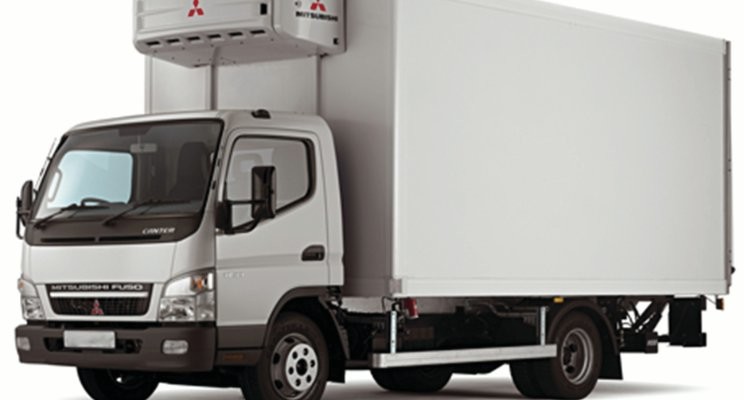Discovering the Right Cold Transport Companies for Your Logistics
Discovering the Right Cold Transport Companies for Your Logistics
Blog Article
A Comprehensive Overview of the Mechanisms Behind Refrigerated Vehicle Transportation and Its Function in Food Security
Cooled truck transport is important in preserving food security, employing innovative temperature level control devices and insulation modern technologies to secure subject to spoiling products throughout transportation. The combination of sophisticated tracking systems makes certain real-time oversight, permitting instant intervention in case of temperature discrepancies. These crucial elements not just protect the honesty of food items yet likewise play an essential duty in avoiding foodborne diseases. Recognizing exactly how these devices work with each other raises crucial questions concerning their efficiency and possible areas for improvement within the sector. What ramifications do these elements have for the future of food security?
Significance of Refrigerated Transportation
Cooled transportation plays a critical role in preserving the stability and safety and security of subject to spoiling goods throughout the supply chain (transport refrigeration company). This customized logistics system is important for protecting the high quality of food, consisting of fresh produce, dairy items, meats, and seafood, which are susceptible to spoilage when exposed to temperature fluctuations. The capacity to keep a controlled and consistent environment ensures that these goods keep their nutritional value, taste, and safety and security for customers
In addition, chilled transportation lessens the dangers of foodborne health problems, which can develop from the growth of unsafe microorganisms in poorly kept products. By adhering to strict temperature level requirements, organizations not just conform with regulative standards but additionally foster customer count on and brand integrity. The financial ramifications are significant; lowered perishing rates translate to reduced losses for vendors and merchants, adding to general earnings.
Additionally, the enhancing global need for fresh and high-grade food products better stresses the significance of chilled transportation. As supply chains end up being much more intricate and expand globally, the requirement for reliable temperature-controlled logistics continues to grow, underpinning the whole food distribution network and making certain that disposable items reach their destinations securely and efficiently.
Temperature Level Control Mechanisms
Keeping optimal temperature level control is vital in the transport of subject to spoiling goods, and a range of mechanisms are utilized to attain this goal. Cooled trucks make use of sophisticated refrigeration systems, primarily utilizing vapor compression technology, which distributes refrigerant via evaporator and condenser coils to extract warmth from the freight area. This procedure makes certain that the interior remains continually trendy, thus maintaining the quality and security of the items being carried.
Additionally, vehicles are equipped with temperature surveillance systems that give real-time data on the interior environment. These systems often include electronic sensors and alarms to alert operators in case of temperature changes, making it possible for prompt corrective actions. Some cooled vehicles additionally include programmable temperature level setups, enabling precise control tailored to specific types of cargo, such as pharmaceuticals, vegetables, or fruits.
Furthermore, making use of pre-cooling methods before packing improves the performance of temperature control. By reducing the freight area's temperature prior to the introduction of goods, the danger of temperature level spikes during transportation is decreased. These devices jointly add to a trusted cool chain, crucial for keeping the stability and safety of perishable food things throughout the transport process.
Insulation Technologies
Insulation modern technologies play an important function in boosting the efficiency of refrigerated truck transport by reducing thermal exchange between the freight location and the outside setting. Reliable insulation is essential for maintaining the required temperature for perishable goods, thus making sure food security and high quality throughout transportation.
Usual insulation materials used in refrigerated vehicles consist of polyurethane foam, polystyrene, and fiberglass, each offering varying levels of thermal resistance. Polyurethane foam, understood for its exceptional insulating properties, is often used as rigid panels that can be molded to fit the vehicle's interior.

Advanced Surveillance Solution
To make certain the stability of perishable items throughout transport, progressed monitoring systems have actually emerged as a pivotal technology in the refrigerated truck check that market - refrigerated truck companies. These systems utilize a mix of sensors, information loggers, and real-time tracking innovations to continuously keep an eye on temperature, humidity, and total cargo problems throughout the trip. By supplying instant comments on environmental variables, these systems enable punctual restorative activities, thus guarding item high quality
Modern monitoring systems are geared up with wireless connectivity, enabling seamless data transmission to logistical centers and stakeholders. This connection assists in remote surveillance, which is crucial for maintaining conformity with industry policies and criteria. Alerts can be generated in real-time, notifying operators of any type of discrepancies from pre-set thresholds, therefore minimizing the danger of spoilage.
Moreover, the integration of innovative analytics and artificial intelligence algorithms boosts anticipating abilities, permitting better planning and threat evaluation. Historical data gathered from these systems can educate future transportation methods, optimizing paths and decreasing potential threats. Generally, the deployment of sophisticated surveillance systems represents a significant improvement in the cooled transportation market, strengthening the commitment to protecting the top quality and security of disposable goods throughout their journey.
Effect On Food Safety Specifications
The integration of advanced monitoring systems in cooled truck transport has actually dramatically affected food security requirements across the supply chain. These systems make it possible for real-time monitoring of temperature, humidity, and other essential criteria necessary for preserving the integrity of perishable items. By guaranteeing that products remain within specified temperature arrays throughout transit, these technologies mitigate the threat of microbial growth and spoilage, which are crucial in food security.

The fostering of information analytics also permits aggressive decision-making, allowing companies to recognize prospective concerns prior to they escalate right into food safety offenses. Consequently, the incorporation of innovative tracking systems not more info here just improves functional effectiveness yet likewise fosters higher accountability in the food supply chain. This advancement underscores the critical function of technology in raising food safety requirements and ensuring customer self-confidence in the products they obtain.
Conclusion
To conclude, refrigerated vehicle transport is necessary for maintaining food security via effective temperature control, progressed insulation technologies, and constant monitoring systems. These systems function synergistically to maintain the quality of disposable items and minimize the threat of foodborne illnesses. Adherence to rigorous food safety requirements is attained via the implementation of these innovations, highlighting the essential role of cooled transportation in the food supply chain and its influence on public health.
Cooled truck transport is vital in keeping food safety and security, employing sophisticated temperature control mechanisms and insulation innovations to protect disposable products throughout transportation - refrigerated truck companies. Appropriate maintenance of insulation stability, including regular checks for wear or damage, is also important to suffer the effectiveness of cooled transport systems and guarantee compliance with food safety regulations
The integration of innovative surveillance systems in chilled vehicle transport has considerably influenced food safety and security criteria throughout the supply chain.In final thought, refrigerated vehicle transportation is important for maintaining food safety via reliable temperature level control, advanced insulation innovations, Look At This and continual tracking systems. Adherence to strict food safety criteria is accomplished through the implementation of these modern technologies, highlighting the important function of refrigerated transportation in the food supply chain and its effect on public health.
Report this page